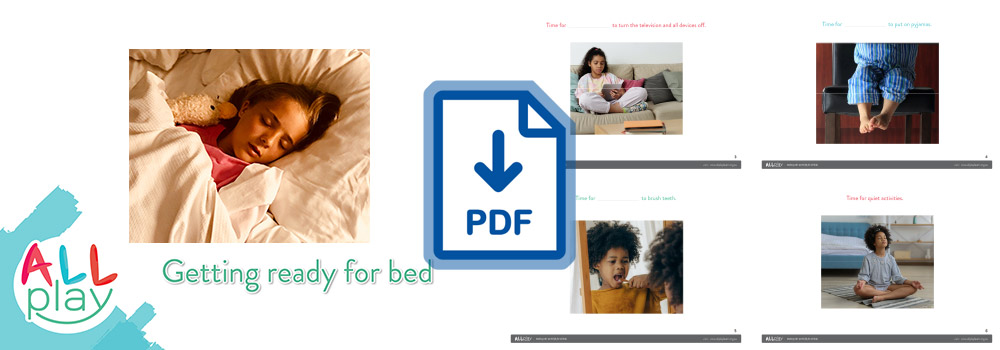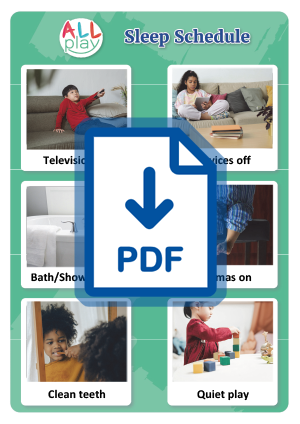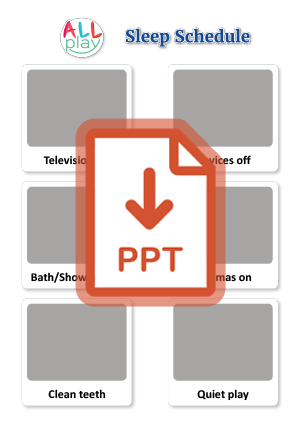Sleep strategies
Research consistently identifies good sleep as essential for wellbeing. Children who get good sleep have been shown to be less impacted by loneliness. Children with autism commonly experience sleep problems and may benefit from extra support with sleep routines.
Good sleep habits can help create the conditions a child needs to achieve a good sleep.
Sleep strategies include:

Regular sleep and wake times
Avoid caffeine
Create the right environment for sleep
Routine
Avoid stimulating activities
Stay calm

Resources
Sleep stories
Sleep stories and sleep schedules can help children become familiar with bedtime routines and can reduce bedtime resistance. Adding photos from your child's own environment to these resources (e.g. a picture of their own bed) can be especially helpful.
Sleep schedules

Additional resources
Listen to a sleep podcast for some more information on identifying sleeping problems in your children, and easy steps to improve their sleep cycles and overall health.




